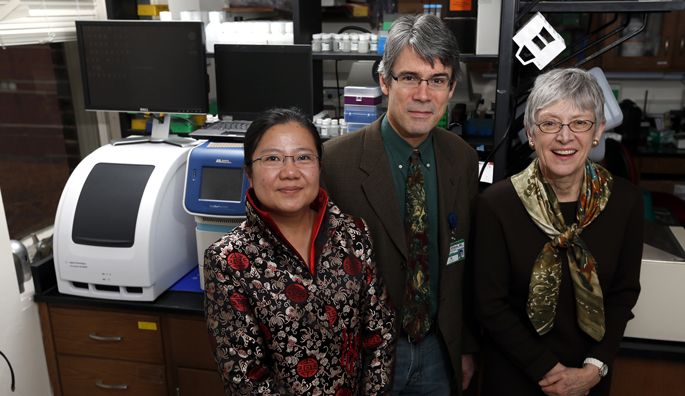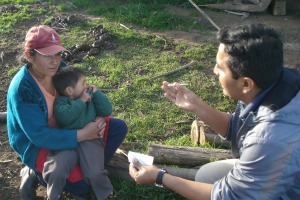John Williams
-

Natural killer cells don’t clear HMPV
Understanding how the immune system responds to the respiratory virus HMPV is crucial for developing vaccines and anti-viral treatments. Read MoreJul 23, 2014
-

Study identifies antibody that may fight MPV, RSV
New Vanderbilt-led research published in the Journal of Infectious Diseases has identified an antibody that shows promise in preventing and treating human metapneumovirus (MPV) and respiratory syncytial virus (RSV) — the two leading causes of respiratory infections in young children. Read MoreJul 17, 2014
-

Respiratory virus vaccine candidate
Virus-like particles containing a protein from human metapneumovirus are a promising vaccine candidate for this respiratory virus. Read MoreMay 27, 2014
-

Research reveals clues to childhood respiratory virus
New Vanderbilt-led research published in the Feb. 14 issue of the New England Journal of Medicine has identified the relatively unknown human metapneumovirus (MPV) as the second most common cause of severe bronchiolitis in young children. Read MoreFeb 14, 2013
-

Cell entry ports for cold virus
The respiratory virus HMPV uses its fusion (F) protein – which interacts with cellular receptors called integrins – to bind to and enter target cells. Read MoreSep 25, 2012
-

New therapeutic target for cold, flu viruses identified
Viruses that cause acute respiratory infections — such as human metapneumovirus (HMPV) and flu — impair a set of immune system cells that should clear the virus from the lungs. Now, Vanderbilt University investigators have discovered the signaling pathway that disables these immune cells. Read MoreAug 9, 2012
-

Researchers spot Achilles’ heel in respiratory virus
A new viral protein structure could jump-start vaccine development for two leading causes of lower respiratory disease in children and elderly adults. Read MoreApr 13, 2012
-

Grant aids pediatric pneumonia study in Peru
Carlos Grijalva, M.D., MPH, assistant professor of Preventive Medicine, will go to the rural areas of the Peruvian Andes through a $500,000 grant from the Thrasher Foundation to examine pneumonia in children in the hopes of describing the association between common respiratory viral infections and bacterial infection. Read MoreJun 8, 2011